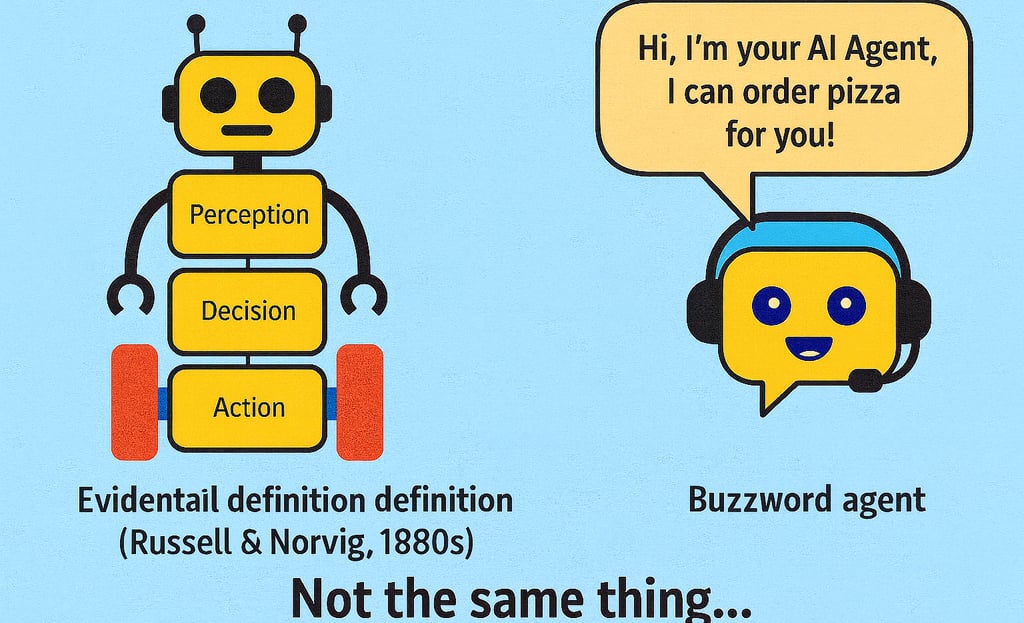”AI Agents” – Buzzword or Scientific Concept?
Krzysztof Michalik
8/27/20251 min czytać


My post content
These days you hear the phrase “AI agents” everywhere. It sounds futuristic and sophisticated, but in most cases it’s just hype — a buzzword meant to impress investors and social media audiences.
In computer science, though, the term agent has always had a clear and rigorous meaning. Since the 1980s, textbooks such as Russell & Norvig’s Artificial Intelligence: A Modern Approach have defined an agent as: a system that perceives its environment through sensors and acts upon that environment through effectors. That’s the foundation, not marketing.
Over time, this definition has been expanded and refined. We distinguish between reactive agents (fast, rule-based responders), deliberative agents (planning, reasoning systems), and even formal models like BDI (belief–desire–intention) agents, which balance knowledge, goals, and intentions. And then there are multi-agent systems (MAS) — environments where many agents interact, cooperate, or compete, often producing complex emergent behaviors.
That long and serious history does not justify the current “evolution” of the term into semantic noise. Today, what’s branded as an “AI agent” is usually just a chatbot with plugins, a script calling an API, or a customer service bot. None of these match the formal definition. What we see is not scientific progress in terminology, but a sloppy appropriation driven by ignorance and the marketing industry’s need for shiny new labels.
The takeaway is simple: not every bot is an AI agent. In the scientific sense, an agent is a system built on the perception–decision–action loop, often embedded in multi-agent frameworks. Everything else — the LinkedIn pitches, the startup slogans — is just buzz. Empty noise dressed up as innovation.